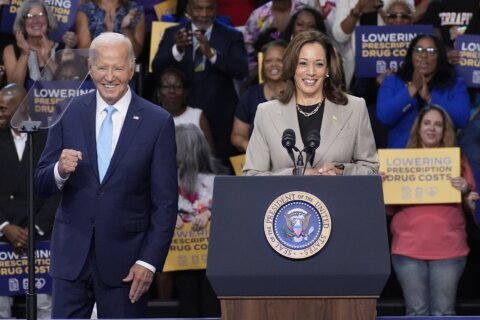Hiring someone is a major investment for a company, and hiring managers often rely on job references to ensure they’re bringing on the best fit for their team.
For an interviewee, a glowing reference from a former boss or colleague could give you the edge you need to outshine your competition in a cut-throat job market. Here’s everything you need to know about job references, including how to properly present them to your future employer and who to ask.
[Read: How to Ask for the Job at the Interview.]
When Do You Need Job References?
Many employers check your references toward the end of the hiring process or right before they’re ready to make an offer, which is why you typically don’t need to provide your job reference along with your resume and cover letter. Because gathering references can take time, however, it’s a good idea to have them prepared just in case.
Who Should You Ask to Be Your Reference?
When choosing the person to serve as your reference, focus on current or former managers, supervisors and colleagues who can “attest to your work product, professional accomplishments and day-to-day demeanor,” says Laura Mills, head of Early Career Insights at the ed-tech company Forage.
If you’re struggling to decide on whom to add to your job reference list, filter your options by seeing if they meet the following criteria:
— Know you well enough to answer questions related to your past work experience.
— Can speak to your skills, achievements and work ethic in a positive way.
— Have worked with you within the past five years.
— Can recommend you wholeheartedly and have your best interest in mind.
— Express themselves clearly and professionally over the phone.
Once you have an idea of who to ask, narrow down your list to three references for any given job. If you’re early in your career and don’t have much job experience, consider asking professors from college courses in which you performed well. But don’t fret if you only have one to two references. Most employers will understand if you’re just starting out.
[READ: What Am I Worth at Work?]
How Do You List References on Your Resume?
You don’t. Because resumes are typically only one page, cramming your list of job references onto them can be a waste of space. Plus, resumes can often look cluttered enough already, so by the time someone reaches the end, they may not be reading as thoroughly as you hope.
“Recruiters know candidates can offer references upon request, so even stating ‘references available upon request’ is an unnecessary use of valuable resume space,” says Eric Cormier, manager of HR Services with Insperity, a provider of scalable HR solutions.
Instead of sacrificing the readability of your resume by stuffing your job references in there, wait until the hiring managers explicitly ask for references. After that, you can provide your job references in a separate list with a readable format.
Proper Job Reference Format
Listing your job references is straightforward. Include the following information for each person on your reference list:
— Name.
— Current job title.
— Company.
— Email address.
— Phone number.
— Reference description.
Here’s an example of what that would look like:
Dr. Sammie LeeVP of Engineering Happy Platforms, Inc. sammie.lee@happy.com (555) 444-3333 Dr. Lee was my manager for four years, from 2008-2012
Mr. Zachary AdamDirector of Marketing Sunshine Motor Company zadam@sunshine.com (222) 111-0000 Mr. Adam was my colleague for three years, from 2020-2023
Karoline SmithFront-End Software Engineer Interstellar Co. (444) 222-3333 karolinesmith@email.com Karoline is a front-end software engineer I collaborate with daily in my current position at Interstellar Co.
Don’t forget to include your name, phone number and email at the top of the page so the hiring manager knows whose reference sheet it is.
[READ: Common Job Interview Questions and How to Answer Them.]
The Do’s and Don’ts of Job References
Here are some do’s and don’ts to help you navigate job references and land your dream role:
Do’s
Do check in with references first. Always check in with your references before listing them, even if they have already agreed via phone or email to help you. And make sure to give them a heads-up that they may be contacted soon by a recruiter. Thank them for their time in advance.
Do choose your references wisely. What your references say to the hiring manager can make or break your job search. So, think carefully about who may have the most in-depth knowledge about you and make sure your references can speak directly to the skills you’ll use on the job. For example, Cormier warns that although you may feel tempted to choose a co-worker with whom you’re especially close to serve as your reference, your manager may often possess more insight and credibility.
Do set your references up for success. Give your references all the tools they need to advocate for you by sending them a copy of your resume, cover letter and the job description for the position, as well as the specific skills or qualities you would like them to highlight in their conversation with the hiring manager.
Dont’s
Don’t list friends or family. While your loved ones can vouch for how loving of a friend or sibling you are, they’re not appropriate choices for professional references. As Cormier points out, some employers may even have rules against using friends or family members as references. And even if this isn’t the case, he says it’s still best to choose people who can offer a professional perspective on your work abilities.
Don’t choose a reference from the distant past. Your references should have worked with you recently enough to speak to your skills and work ethic. “For instance, a college professor may be an appropriate reference for a 20-year-old aspiring summer intern at Google, but not for a graduate with decades of work experience under their belt,” Cormier says.
Don’t provide more references than required. Overwhelming your hiring manager or recruiter with an excessively long list of references is never a good idea. “Most employers will specify how many references they want, so there’s no need for you to include any additional references beyond this number,” Cormier says. However, if the hiring manager or recruiter does not specifically say how many references they want, including three is usually appropriate.
More from U.S. News
The STAR Method: How to Ace the Interview
Questions to Ask During a Job Interview
How to Describe Weaknesses in a Job Interview
Everything You Need to Know About Job References originally appeared on usnews.com







